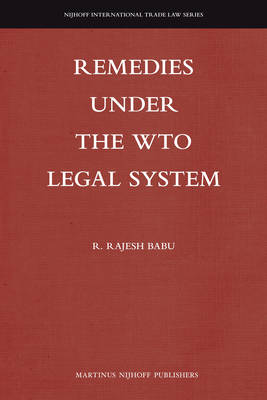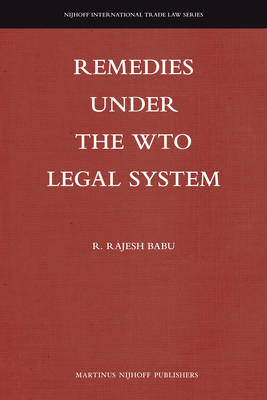
- Afhalen na 1 uur in een winkel met voorraad
- Gratis thuislevering in België vanaf € 30
- Ruim aanbod met 7 miljoen producten
- Afhalen na 1 uur in een winkel met voorraad
- Gratis thuislevering in België vanaf € 30
- Ruim aanbod met 7 miljoen producten
Zoeken
Omschrijving
The World Trade Organization (WTO) dispute settlement system, has succeeded, since its establishment in 1995, in generating a perception that the DSU offers one of the most advanced multilateral adjudicatory systems that exist today, principally because of the large volume of cases it has attracted and settled. Despite a high record of satisfactory settlements of disputes and tall claims in appreciation, there is an equal amount of scepticism, particularly about the nature and content of remedies for violations of WTO rights and obligations. This book presents a critical review on the problems stemming from the nature and scope of the WTO remedies and its enforcement. The study highlights in a comparative perspective the lacunas and inadequacies in the current system, and in the process, accentuates the detrimental nature of the WTO remedies on the interest of the developing and least developing countries.
Specificaties
Betrokkenen
- Auteur(s):
- Uitgeverij:
Inhoud
- Aantal bladzijden:
- 518
- Taal:
- Engels
- Reeks:
- Reeksnummer:
- nr. 11
Eigenschappen
- Productcode (EAN):
- 9789004209022
- Verschijningsdatum:
- 25/07/2012
- Uitvoering:
- Hardcover
- Formaat:
- Genaaid
- Afmetingen:
- 163 mm x 239 mm
- Gewicht:
- 929 g

Alleen bij Standaard Boekhandel
+ 754 punten op je klantenkaart van Standaard Boekhandel
Beoordelingen
We publiceren alleen reviews die voldoen aan de voorwaarden voor reviews. Bekijk onze voorwaarden voor reviews.








